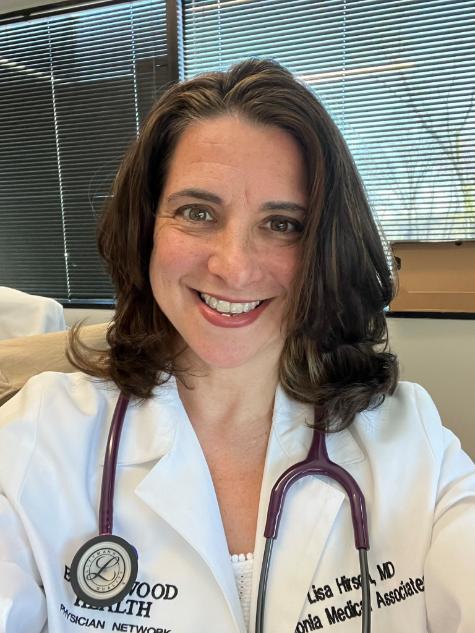Medical Students Participate in Elective Course with Incarcerated Individuals
The Unique Course Focused on Health in the Jail Population and Included NYMC Students and Individuals Incarcerated in the Westchester County Jail

Fourth-year medical students at New York Medical College (NYMC) had the opportunity to participate in a unique new elective focused on health in the jail population this spring that included both NYMC students and individuals incarcerated in the Westchester County Jail. The course used the Inside-Out Prison Exchange Program modality, first developed by Temple University, with the NYMC students as the “outside” students and the incarcerated students as the “inside” students participating jointly in the class via Zoom.
“When we think about health equity, one of the biggest areas of health disparity relates to people who are currently or previously incarcerated. They were disproportionately impacted by the pandemic and in general, they don't have access to much of the health care that they need while in jail,” said Mill Etienne, M.D.’02, M.P.H., vice chancellor of diversity and inclusion, associate dean of student affairs and associate professor of neurology and of medicine. “We thought it was important for the medical students to be exposed to this population, so that they could strive to understand their challenges and realize that they're human beings with goals and interests, just like them. And I think that we have definitely achieved our goal.”
Dr. Etienne co-created the NYMC elective course, “Health and Justice” with Lisa Hirsch, M.D., clinical assistant professor of medicine and family and community medicine, who served as course director, and in close collaboration with two then fourth-year medical students—Stella Iskandarian, M.D. ’23 and Anandhini Narayanan, M.D. ’23.
“NYMC has implemented several measures to create a more diverse and anti-racist academic community and to encourage critical thinking about our current health care delivery system; the justice-involved population should be a part of those conversations,” said Dr. Iskandarian. “Correctional facilities overwhelmingly incarcerate ethno-racial minorities, people with mental health conditions, individuals from LGBTQ+ communities and the socioeconomically disadvantaged. These groups are already subject to disparities and inequities within our health care system. Incarcerated people have higher rates of diseases than the general population and tend to suffer more from infectious disease, mental health problems and substance use disorders. Despite these jarring facts, justice-involved health care is rarely discussed in medical education or beyond.”
Each of the weekly classes consisted of guided dialogue in both large groups and smaller subgroups on a range of topics related to health in the jail population, including COVID-19, chronic disease, addiction and substance abuse, physical exercise, as well as nutrition and socioeconomic determinants of health. Weekly reflections and participation were important components. The course culminated with final projects that demonstrated a true collaboration between the outside and inside students on topics ranging from opioid addiction and lung cancer screening to oral hygiene and mental health. The projects will be incorporated into a manual on how to be healthy and used by the Westchester Department of Corrections.
“The interactions between the 'inside' and 'outside' students were meaningful for both groups,” said Dr. Hirsch. “The various discussion topics such as addiction, ‘what is life’ and social determinants of health were starting points for rich conversations. You could feel barriers melting after each interaction that the students had with each other. Watching the 'inside' students wish our medical students good luck on the match was priceless. Everyone left with an appreciation of educational opportunities and the realization that often similarities outweigh differences.”
“At its core, our vision for the Health and Justice elective was to facilitate human-to-human connection and understanding between the outside and inside students to break down some of the assumptions both groups of students were coming in with, to learn together and to grow together,” said Dr. Iskandarian. “It was surreal to have seen exactly what happens during each session through our diverse topics, fruitful conversation and collaborative learning. What has stayed with me the most and will undoubtedly serve to inspire me every day going forward is the incredible level of engagement and gratitude from the inside students.”
“We hope to see other medical schools participating in similar programs so that we can continue to knock down the barriers between the health care system and the justice system,” said Dr. Etienne.
